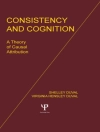This book is the first comprehensive intellectual biography of Johannes Linschoten, whose work has been credited with helping to bring down the Utrecht School of phenomenological psychology. The authors show this to be a mistaken assumption in the light of Linschoten’s entire oeuvre and demonstrate his importance for an understanding of a phenomenological psychology that necessarily coexists with an experimental, scientific psychology. In the Netherlands, Linschoten is particularly appreciated for his last book, published posthumously. That volume, Idols of the Psychologist, took a critical look at phenomenological psychology and its pretensions while simultaneously acknowledging that a phenomenological outlook is a necessity for beginning any kind of experimental investigation. Most commentators on this book considered Linschoten a convert from phenomenology to experimental psychology, but have either ignored his earlier, substantive work or have not seen the importance of the intellectual context for his final work.
By examining his life and the full extent of his voluminous writings, this book demonstrates Linschoten’s importance for the development of psychology in the Netherlands and beyond. It will shed new light on the life and work of Johannes Linschoten as well as the Dutch school of phenomenology and its postwar contributions to psychology in Europe and North America. Furthermore, for the first time, this book brings together important aspects of Linschoten’s life with his prodigious output. It demonstrates how his life and work created a unique psychology that deserves to be continued and developed.
Зміст
Chapter 1 Introduction.- Chapter 2 Phenomenology The life of the mind and their expressions in Europe in the early 20th century.- Chapter 3 Linschoten A Life.- Chapter 4 Early writings 1949-1957.- Chapter 5 Experimental phenomenology The dissertation on binocular depth perception.- Chapter 6 On the way toward a phenomenological psychology Linschoten on William James.- Chapter 7 On the way toward Idols of the psychologist Linschoten’s Lectures and articles 1959 – 1964.- Chapter 8 Idols of the psychologist.- Chapter 9 Aftermath The impact of Johannes Linschoten.- Chapter 10 Conclusion.
Про автора
René van Hezewijk began his studies at the University of Utrecht and eventually became Associate Professor. He then moved to the Dutch Open University as Professor and Dean of the Faculty of Psychology. He has published extensively on theoretical and historical topics in psychology and has had a long-standing interest in the ‘Utrecht School’ of phenomenological psychology that flourished in the mid-twentieth century. He was the editor of Nederlands Tijdschrift voor de Psychologie for 14 years, and former Treasurer and President of the International Society for Theoretical Psychology.
Henderikus Stam is a Professor Emeritus of Psychology and a former Adjunct Professor in the Department of History at the University of Calgary, Calgary, Canada. His recent work has focused on contemporary theoretical problems in psychology and the historical foundations of 20th-century psychology. He was the founding editor of Theory & Psychology, which he edited for 26 years. He is a founding member and former President of the International Society for Theoretical Psychology; a former President of Division 24 of the American Psychological Association (Society for Theoretical and Philosophical Psychology) as well as Division 26 (Society for the History of Psychology). In 2015 he was honored when the American Psychological Foundation presented him with the Joseph B. Gittler Award for his contributions to the philosophy of psychology












